featured
The Epic High Times Cannabis Cup Journey, From Amsterdam to the Empire State
Published
3 hours agoon

The High Times Cannabis Cup has come a long way since its scrappy beginnings in 1988. Born in Amsterdam’s smoky coffeeshops and now blossoming into a global competition judged by everyday fans, the Cup’s history is as colorful as cannabis culture itself. As High Times gears up for its New York Cannabis Cup in 2025, it is the perfect time to look back on how this competition became the world championship of weed.
The Cup Takes Root in Amsterdam
Amsterdam’s tolerant cannabis culture made it the perfect birthplace for the High Times Cannabis Cup in 1988.
In late-1980s Amsterdam, High Times launched a small invitational to celebrate the best cannabis on the planet. The city’s unique tolerance system let people gather openly and judge the year’s standouts in public. In November 1988, the inaugural Cannabis Cup took place and set the tone for what would become an annual tradition. High Times’ Amsterdam retrospective captures those early days and why the format fit the moment.
That first Cup was a humble affair by today’s standards. Only a handful of Dutch seed companies entered, and a small panel of judges weighed the entries. Among the earliest voices around the Cup were High Times editor Steven Hager and longtime columnist and cultivation educator Ed Rosenthal. History was made when Skunk #1, entered by Cultivator’s Choice, took the top honors. Soon after, breeder Nevil Schoenmakers of The Seed Bank acquired Cultivator’s Choice and went on to capture the following Cups with his own work. High Times’ hybrid history outlines how those wins echoed through modern genetics.
Origin Notes: There are a few versions of how the earliest Cup moment unfolded. Some accounts describe a private judging in 1987 among a small group associated with High Times, with Ed Rosenthal involved. The publicly organized Amsterdam event that became the annual tradition took place in 1988, with Skunk #1 winning that year, and Steven Hager among the key organizers. We recognize different memories around those earliest days and present what is most consistently verifiable in print, while noting that some details are still debated within the community.
High Times in the High Country: 1990s Expansion
In the early 1990s, the Cup evolved from a niche gathering into a full-fledged cultural event. A U.S. crackdown on seed companies pushed parts of the scene further underground, and the 1991 Cup leaned into an Amsterdam coffeeshop crawl. For the first time, members of the public joined judging for coffeeshop entries. About 50 civilian judges voted that year, and the people’s pick landed. The door was open for fans to help crown champions.

Opening the judging did more than make the Cup fun. It shaped the industry. “Many coffeeshops and seed companies were made by winning the Cannabis Cup,” recalls High Times cultivation editor Danny Danko. A first-place trophy could turn an unknown breeder into an overnight draw. Amsterdam institutions like Green House and Barney’s became destination stops thanks to multiple wins and a friendly rivalry. Up-and-coming seed outfits got on the map after big results, with U.S.-based Rare Dankness and the U.K.’s Big Buddha Seeds among the success stories.
Competition also pushed innovation. The desire to win drove flavor hunts, higher potency, and better craft. The 1990s minted strains that still define the menu. White Widow clinched the 1995 Cup for Green House and reset expectations for resin. By 1998–99, Super Silver Haze ruled sativa. A decade later its citrusy offspring Super Lemon Haze made history as a back-to-back champion in 2008 and 2009. As genetics went global, the Cup kept spotlighting future classics, from Skunk #1 to Tangie in 2013.
By the mid-’90s, the Cannabis Cup was as much a cultural happening as a competition. High Times layered in a yearly salute to the movement’s architects with a Hall of Fame segment during Cup week, honoring figures whose work shaped the culture. The parties were part of the legend too. Shows at Amsterdam’s Melkweg brought hip-hop, rock, and reggae into the mix, with lineups that gave Cup nights a soundtrack fans still talk about. For many, the annual pilgrimage to Amsterdam became a high holiday.
End of an Era, Crackdowns and Change
Nothing gold stays. By the 2010s, the Amsterdam Cannabis Cup was under new pressure. On November 23, 2011, Dutch police raided the Cup expo, the first time authorities stepped into the event’s space. Cannabis was still tolerated, but a tougher political mood had taken hold. Officers enforced possession limits and seized personal stashes. No attendees were ultimately charged, but the message landed.
High Times kept the Cup in the Netherlands a little longer, yet planning got harder each year. In 2014, after 27 consecutive editions, Amsterdam’s run effectively wrapped. Stricter enforcement around drug tourism and gray-area supply made the old model harder to stage, while new legal markets in the United States were opening their doors. The Cup returned to Amsterdam for special editions in 2017 and 2018, but 2014 stands as the end of the continuous Amsterdam chapter as the spotlight shifted stateside.
The Cannabis Cup Comes to America
Before Amsterdam’s finale, the Cup had already started taking its show on the road. 2010 was a turning point. High Times launched the first U.S. events with a Medical Cannabis Cup in San Francisco. It was a natural move as America’s medical scene grew. In 2012, voters in Colorado and Washington approved adult-use. By 2014, Colorado had the first recreational shops, and in 2015 Denver hosted the first fully legal recreational High Times Cup. Adults 21 and over could attend, purchase products, and participate without a medical card. That same year a World Cannabis Cup in Jamaica brought the competition to the spiritual home of ganja.

Through the late 2010s, High Times staged Cups across legal markets from California to Colorado, Michigan, Washington, Oregon, Illinois, Nevada, and more. What began as an underground meetup in Amsterdam grew into a roadshow that mirrored legalization. Each regional Cup kept the spirit of the original while letting local scenes shine.
People’s Choice, A New Era
In 2020, the pandemic shut down large events. High Times pivoted to the People’s Choice Edition. Instead of crowded expo halls, the Cup reinvented the competition for an at-home experience and opened judging to everyday consumers via exclusive judge kits sold at dispensaries. Rather than a small expert panel, hundreds of local judges score entries from home. In statewide contests, roughly 228 judge kits per category are offered and tend to sell out fast.
The crowdsourced model democratized the Cup. Fans who never thought they would smoke a full Cup lineup now help decide who wins. Swapping concert stages for scorecards kept the competition alive and true to its roots.
2025, The Cup Comes Home to New York
In 2025, the Cup reaches another milestone. For the first time, High Times is hosting a Cannabis Cup in New York, and it is a People’s Choice edition open to the public. It is on track to be the largest People’s Choice Cannabis Cup to date. For a brand that got its start in New York in the 1970s, bringing the Cup to the Empire State feels full-circle.
As the Cannabis Cup enters its next chapter, it carries the legacy of all that came before, the early Amsterdam pioneers, the strains and personalities that defined cannabis history, and the community of enthusiasts who push it forward. From a small room of judges in 1988 to a statewide People’s Choice in 2025, the Cup reflects the broader journey of cannabis itself. Once underground, now on top of the world, and still a lot of fun. In true High Times fashion, the Cup continues to evolve without losing its cool. As New York’s People’s Choice kicks off, coffeeshop crawls give way to deli runs and tulip joints to bodega blunts. One thing remains constant. The Cannabis Cup is where cannabis history is made, one puff at a time.

Author: mscannabiz.com
MScannaBIZ for all you Mississippi Cannabis News and Information.
You may like
-
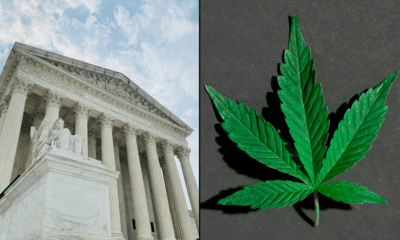

Marijuana Companies Ask U.S. Supreme Court To Take Up Case Challenging Constitutionality Of Federal Prohibition
-


The Odds Of The Feds Making A 2025 Cannabis Change
-


GOP Senator Pushes To Study—Rather Than Ban—Hemp Products, As State Attorneys General Call For THC Prohibition
-


Happy International Champagne Day – The Fresh Toast
-


Maryland Police Want To Watch You Smoke Weed: Free Munchies and Ride Home Included
-
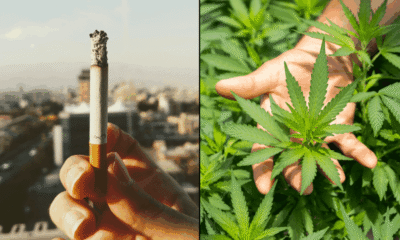

More Americans Now Use Marijuana Than Smoke Cigarettes, New Study Shows
featured
Marijuana Companies Ask U.S. Supreme Court To Take Up Case Challenging Constitutionality Of Federal Prohibition
Published
28 minutes agoon
October 24, 2025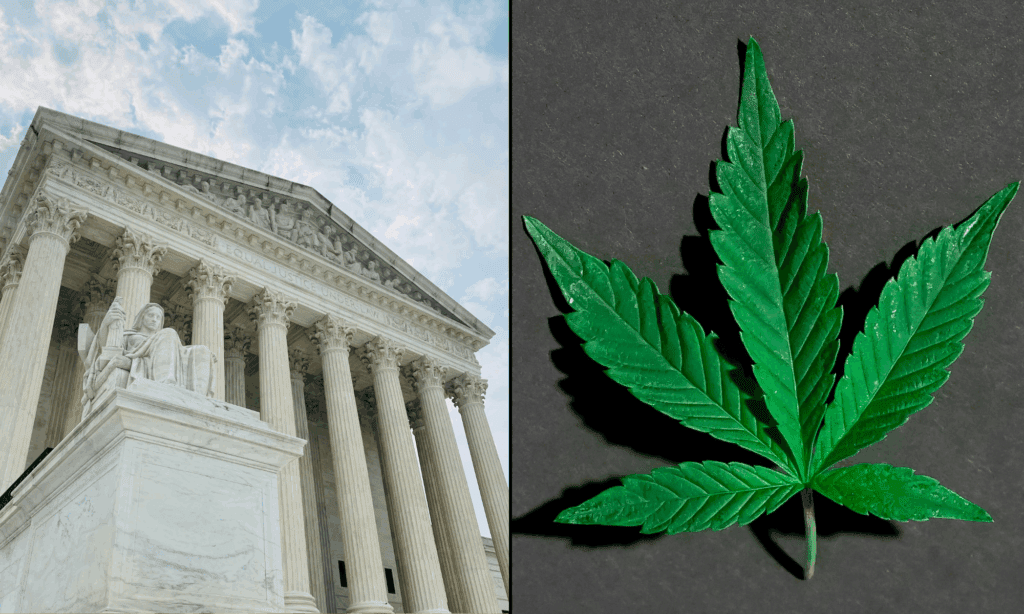
A coalition of marijuana companies has filed a petition asking the U.S. Supreme Court to take up their case challenging the constitutionality of federal prohibition.
About two months after the court accepted an application for an extend the filing deadline, the law firm Boies Schiller Flexner LLP that’s representing the companies submitted the petition for writ of certiorari on Friday.
The case from Massachusetts-based marijuana companies and industry leaders—Canna Provisions, Gyasi Sellers, Wiseacre Farm and Verano Holdings–argues that the Commerce Clause of the U.S. Constitution precludes the federal government from enforcing criminalization laws against intrastate cannabis activity.
To that end, they want justices to reevaluate a landmark 2005 case, Gonzales v. Raich, wherein the Supreme Court narrowly determined that the federal government could enforce prohibition against cannabis cultivation that took place wholly within California based on Congress’s authority to regulate interstate commerce.
The new Supreme Court petition argues that the Raich decision was “an aberration” in the court’s precedents on the Commerce Clause and Necessary and Proper Clause, and represents “a drastic departure from the federalism principles those clauses embody.”
The ruling two decades ago permitted a “dramatic intrusion on the exercise of the States’ police powers,” it says.
The Controlled Substances Act’s (CSA) “significance to the exercise of the States’ police powers is massive and even greater today than it was in Raich’s time, when only nine states had legalized marijuana,” the petition says. “Thirty-eight states have now decided that the health and safety of their citizens is better served by making marijuana available through regulated channels than through prohibition. The CSA displaces those states’ choices and imposes Congress’s own views on intrastate policy. The serious federalism questions raised by that intrusion warrant the Court’s attention now, as they did in Raich.”
The petition says that after the Raich decision was issued, the federal government has “undermined the notion of any link between the CSA’s interstate goals and its intrastate prohibitions.”
“Since 2014, Congress has barred enforcement against state-regulated medical marijuana but not adult-use marijuana (while leaving both prohibited under the CSA). State-regulated medical marijuana is therefore less regulated, from a federal perspective, than the least-controlled Schedule V substances in the CSA. The DOJ has taken non-enforcement even further, with a policy of not enforcing the CSA as to either state-regulated medical or adult-use marijuana… This long period of desuetude has severed any link between controlling state-regulated marijuana and regulating interstate commerce, thereby rendering the CSA’s intrusion on the States’ policymaking even more stark.”
A U.S. appeals court rejected the arguments of the state-legal cannabis companies in May. It was one the latest blows to the high-profile lawsuit following a lower court’s dismissal of the claims. But it’s widely understood that the plaintiffs’ legal team has long intended the matter to end up before the nine high court justices.
Four justices must vote to accept the petition for cert in order for the court to take up the case.
While it remains to be seen whether SCOTUS will ultimately take the case, one sign that at least some on court might be interested in the appeal is a 2021 statement from Justice Clarence Thomas, issued as the court denied review of a separate dispute involving a Colorado medical marijuana dispensary.
Thomas’s comments at the time seemed to suggest it’d be appropriate revisit Raich—a move that could upend federal prohibition.
The statement pointed to policy developments since the earlier case was decided, such as the hands-off enforcement approach taken by the Department of Justice as more states legalized cannabis and a congressional budget rider protecting state-legal medical marijuana programs.
“Whatever the merits of Raich when it was decided, federal policies of the past 16 years have greatly undermined its reasoning,” Thomas wrote, describing the government’s approach to cannabis enforcement as “a half-in, half-out regime that simultaneously tolerates and forbids local use of marijuana.”
“Though federal law still flatly forbids the intrastate possession, cultivation, or distribution of marijuana…the Government, post-Raich, has sent mixed signals on its views,” the justice continued, saying the situation “strains basic principles of federalism and conceals traps for the unwary.”
The initial complaint in the current case now known as Canna Provisions v. Bondi, filed in U.S. District Court for the District of Massachusetts, argued that government’s ongoing prohibition on marijuana under the Controlled Substances Act (CSA) was unconstitutional because Congress in recent decades had “dropped any assumption that federal control of state-regulated marijuana is necessary.”
At oral argument on appeal late last year, David Boies told judges that under the Constitution, Congress can only regulate commercial activity within a state—in this case, around marijuana—if the failure to regulate that in-state activity “would substantially interfere [with] or undermine legitimate congressional regulation of interstate commerce.”
Boies, chairman of the firm, has a long list of prior clients that includes the Justice Department, former Vice President Al Gore and the plaintiffs in a case that led to the invalidation of California’s ban on same-sex marriage, among others.
Judges, however, said they were “unpersuaded,” ruling in an opinion that “the CSA remains fully intact as to the regulation of the commercial activity involving marijuana for non-medical purposes, which is the activity in which the appellants, by their own account, are engaged.”
The district court, meanwhile, said in the case that while the there are “persuasive reasons for a reexamination” of the current scheduling of cannabis, its hands were effectively tied by past U.S. Supreme Court precedent in Raich.
This comes in the background of a pending marijuana rescheduling decision from the Trump administration. President Donald Trump said in late August that he’d make a determination about moving cannabis to Schedule III of the CSA within weeks, but he’s yet to act.
Meanwhile, this week the Supreme Court agreed to hear a separate case on the constitutionality of a federal law prohibiting people who use marijuana or other drugs from buying or possessing firearms. The Trump administration has argued that the policy “targets a category of persons who pose a clear danger of misusing firearm” and should be upheld.
Read the Supreme Court petition below:

Author: mscannabiz.com
MScannaBIZ for all you Mississippi Cannabis News and Information.
featured
The Odds Of The Feds Making A 2025 Cannabis Change
Published
1 hour agoon
October 24, 2025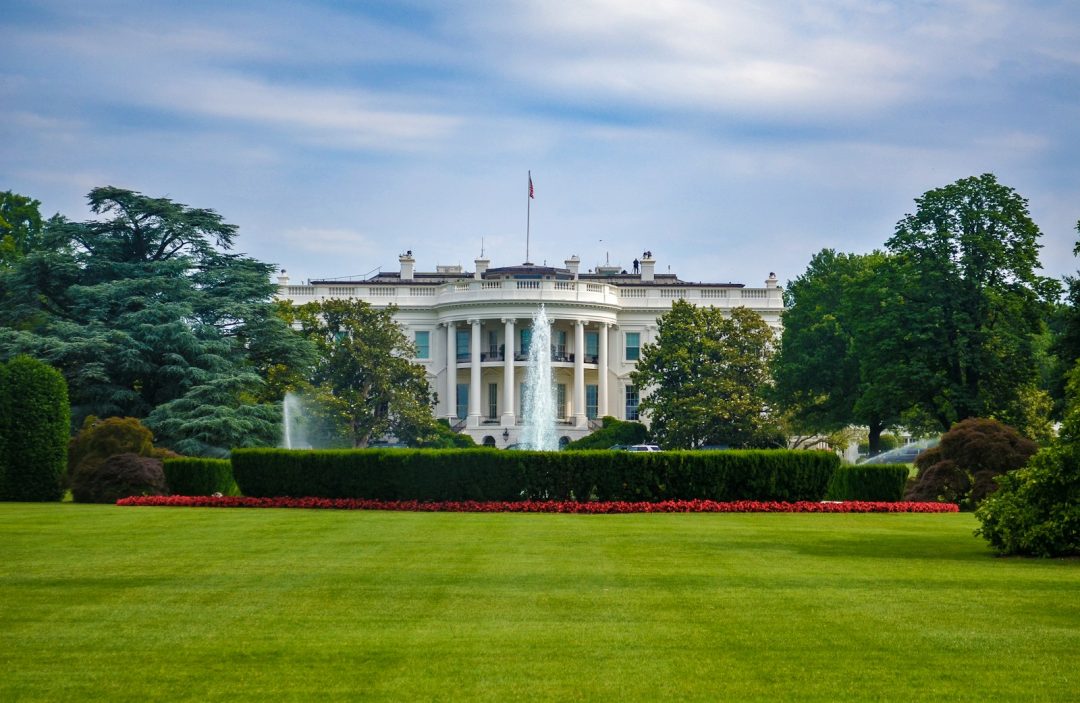
The Odds Of The Feds Making A 2025 Cannabis Change explored through politics, markets, and investor predictions.
As the races toward the finish line, investors, policy wonks and marijuana consumers are asking the same question: what are the odds of the Feds making a 2025 cannabis change? Short answer: possible, but far from certain — prediction markets and recent signals put the odds in the low-double digits, while loud political and legislative headwinds keep the outcome uncertain.
RELATED: The Connection Between Country Music And Cannabis
Prediction markets give the cleanest single-number read: traders on Polymarket currently price the chance the Drug Enforcement Administration (or another federal process) will reschedule marijuana this year at roughly 18%. That market — “Weed rescheduled in 2025?” — settles on official government action by Dec. 31, making it a useful, real-time barometer of collective expectations.

Two dynamics are driving optimism. First, signals from the executive branch — including public comments from White House-adjacent figures and renewed attention from the administration — have signaled openness to reform, keeping the rescheduling conversation alive. Second, high-profile statements and advocacy (and even polling) have pushed cannabis onto the political agenda, prompting some lawmakers and officials to call for a clearer federal framework.
But the path to action is narrow. Key congressional players have moved to constrain agency flexibility: the House Appropriations Committee has advanced language aimed at blocking Department of Justice funding for reclassifying marijuana, a direct check on executive action. That kind of legislative resistance reduces the chance the DEA or DOJ can unilaterally reschedule this year.
The DEA’s own process and timing add more friction. Rescheduling entails administrative reviews, hearings and legal steps typically take months — and while the agency has periodically updated stakeholders, there’s no guarantee a final rule can be completed and implemented before year-end.
RELATED: The VFW Stands Up For Marijuana
Equities and cannabis ETFs have been volatile in response to policy chatter. Major pot names — Tilray, Canopy Growth, Cronos and others — have seen price swings tied to headlines, earnings and policy signals; some firms even reported notable gains after pro-reform statements and positive quarterly results. Market trackers and analysts continue to flag these stocks as sector plays to watch, but caution regulatory uncertainty keeps valuations jittery.
Combine a roughly 18% market-implied chance, vocal White House signals and strong investor interest, but also legislative pushback and a slow administrative process, and the most realistic forecast is modest odds of federal movement before December 31. In plain terms: meaningful federal change this year is possible — not impossible — but bettors and investors should expect bumps, delays and political counter-moves rather than a clean, guaranteed policy win.

Author: mscannabiz.com
MScannaBIZ for all you Mississippi Cannabis News and Information.
featured
GOP Senator Pushes To Study—Rather Than Ban—Hemp Products, As State Attorneys General Call For THC Prohibition
Published
4 hours agoon
October 24, 2025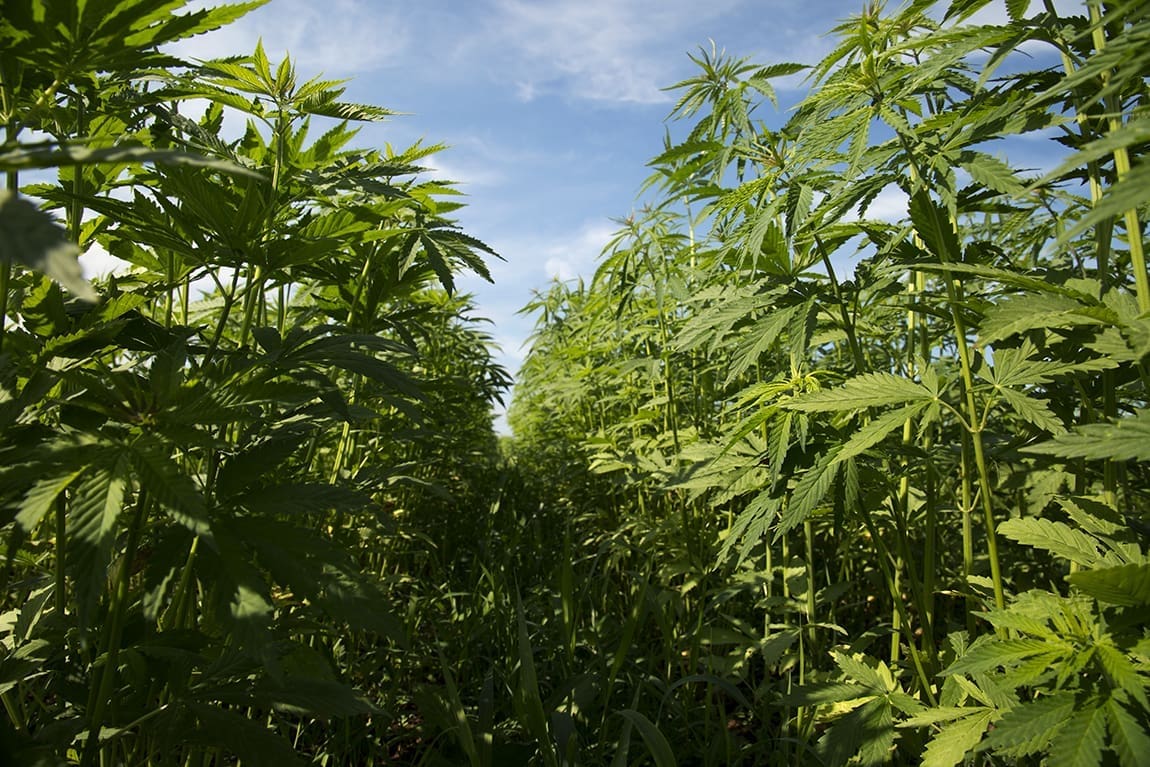
As bicameral lawmakers work to reach a deal on provisions for federal spending legislation, including how to settle an increasingly contentious debate about hemp products, competing interests are making their voices heard on how they think Congress should handle the issue.
To that end, a GOP senator is hoping to replace a proposed ban on hemp THC products with alternate language mandating a study into state regulatory models for consumable cannabinoids, while a group of state attorneys general are taking steps to urge Republican leadership to move ahead with an outright prohibition on intoxicating products.
While the House has not yet passed its version of the agriculture spending bill, the Senate version was combined into a so-called minibus with appropriations legislation that also covers defense and the legislative branch. Last month, House leadership requested a conference committee and appointed negotiators, despite not having advanced its own companion bill through the chamber.
The Senate hasn’t appointed its conferees, and no formal meetings have taken place so far, but it’s reported that appropriators have been informally discussing relevant issues. And one GOP senator is angling to get ahead of the negotiations around hemp.
Sen. Rand Paul (R-KY)—a longstanding champion of cannabis reform who previously blocked a hemp ban from being included in an agriculture appropriations bill passed by the Senate earlier this year—is circulating legislative language, obtained by Marijuana Moment, that he’s asking to be adopted as part of the final package.
It would require the U.S. Department of Agriculture (USDA) to study “best practices” for regulating intoxicating cannabinoid products and submit a report on its findings to Congress.
Here’s the full language:
“SEC.____. STUDY ON HEMP BEST PRACTICES.
Not later than 18 months after the date of enactment of this Act, the Secretary of Agriculture, in consultation with States, shall conduct, and submit to Congress a report on the results of, a study on best practices of States relating to regulation of hemp-derived products for home and personal use.”
Marijuana Moment reached out to Paul’s office for comment, but a representative was not immediately available.
🚨 BREAKING: @RandPaul is countering the McConnell-Harris HEMP BAN with a new amendment.
We can save the hemp industry – but ONLY if Congress hears from YOU right now!
Contact your reps: https://t.co/NvcFObM7Fg
🌿RT to spread the word
— Hemp Industry & Farmers of America (@hifa_health) October 23, 2025
The agriculture appropriations measure the Senate passed as part of a package over the summer initially contained provisions hemp industry stakeholders said would effectively eradicate the market by banning consumable hemp products with any “quantifiable” amount of THC. But after the measure came out of committee, Paul threatened to hold up its passage over the issue, and the language was removed.
Sen. Mitch McConnell (R-KY), who ushered in the federal legalization of hemp under the 2018 Farm Bill, championed the THC criminalization language and took to the floor to criticize those who opposed the ban, including Paul.
McConnell isn’t the only one vying for a renewed prohibition. A group of state attorneys general is circulating a draft letter addressed to GOP leaders in the House and Senate Appropriations and Agriculture committees that calls for the inclusion of the ban because, they say, the currently Farm Bill “wrongly exploited by bad actors to sell recreational synthetic THC products across the country.”
—
Marijuana Moment is tracking hundreds of cannabis, psychedelics and drug policy bills in state legislatures and Congress this year. Patreon supporters pledging at least $25/month get access to our interactive maps, charts and hearing calendar so they don’t miss any developments.![]()
Learn more about our marijuana bill tracker and become a supporter on Patreon to get access.
—
The draft document omits the names of the signatories, but the content cites data from Indiana—and the Republican state attorney general there, Todd Rokita, previously led a separate letter with 20 of his counterparts from other states urging Congress to take action on intoxicating cannabinoid products.
“We ask that Congress clarify the federal definition of hemp during the Fiscal Year 2026 appropriations process or through the reauthorization of the Farm Bill to leave no doubt that these harmful products are illegal and that their sale and manufacture are criminal acts,” the new draft letter, obtained by Marijuana Moment, says.
Hemp industry stakeholders “have nefariously misinterpreted the Farm Bill’s legalization of low concentrations of hemp-derived delta-9 and the Bill’s silence regarding hemp-derived THC products other than delta-9 to claim that the Farm Bill allows them to produce and sell various synthetic cannabinoids regardless of the chemicals’ potency and psychoactive effects,” it says. “In this way, legal, nonintoxicating hemp is used to make Frankenstein THC products that get adults high and harm and even kill children.”
“We commend your commitment to American farmers and your work to create an orderly and well-regulated market for industrial hemp and non-intoxicating hemp-derived products. You should not allow irresponsible corporations to take advantage of your good work to purvey dangerous products in our States. We ask Congress to act decisively to clarify the Farm Bill’s definition of hemp to ensure intoxicating THC products are taken off the market.”
Rokita’s office did not immediately respond to a request for comment from Marijuana Moment.
The House agriculture spending bill, as approved by the Appropriations Committee, included provisions banning consumable hemp products with any “quantifiable” amount of THC, though it has not been taken up on the floor.
Hemp stakeholders are unsure where the issue will land as lawmakers attempt to finalize appropriations legislation, but they’re calling on supporters to contact their representatives and make their opposition to a blanket ban clear.
“The truth is that no one really knows what any final draft would look like, and it is equally uncertain as to whether a minibus itself will see the light of day,” the U.S. Hemp Roundtable said in an email blast.
“If you have not yet alerted your customers, associates, friends and social media contacts that the prospects of a hemp ban are real, NOW IS THE TIME,” it says. “We have an opportunity to kill this, but we are running out of time.”
Meanwhile, Paul recently filed a standalone bill that would go in the opposite direction of the hemp ban, proposing to triple the concentration of THC that the crop could legally contain, while addressing multiple other concerns the industry has expressed about federal regulations.
The senator introduced the legislation, titled the Hemp Economic Mobilization Plan (HEMP) Act, in June. It mirrors versions he’s sponsored over the last several sessions.
Read the text of the state attorneys general draft letter on hemp below:
Photo courtesy of Brendan Cleak.

Author: mscannabiz.com
MScannaBIZ for all you Mississippi Cannabis News and Information.

Marijuana Companies Ask U.S. Supreme Court To Take Up Case Challenging Constitutionality Of Federal Prohibition

The Odds Of The Feds Making A 2025 Cannabis Change

The Epic High Times Cannabis Cup Journey, From Amsterdam to the Empire State

GOP Senator Pushes To Study—Rather Than Ban—Hemp Products, As State Attorneys General Call For THC Prohibition

Happy International Champagne Day – The Fresh Toast

Maryland Police Want To Watch You Smoke Weed: Free Munchies and Ride Home Included

More Americans Now Use Marijuana Than Smoke Cigarettes, New Study Shows

Unexpected Pleasures of Weed: The Strain That Turned My Husband Into a Clean Freak

Texas Officials Adopt Rules To Expand Number Of Medical Marijuana Dispensaries In the State

Cannabis Ventures, Start-Up Best Practices, and Ways to Compete

Older Adults Increasingly Identify as Cannabis Consumers

Kentucky Governor Touts Surge In Medical Marijuana Patient And Business Approvals As State Prepares For Program Launch

SCOTUS cannabis & guns case gets delay request (Newsletter: October 24, 2025)

Ohio House Passes Cannabis, Hemp Bill Resulting From ‘Venn Diagram From Hell’

What To Know About Cannabis And A Brain Aneurysm

MariMed to Expand Brand Distribution to New York

Time for a Cannabis Reboot: Local Roots, Fair Markets, Real Change

Ohio Health Agency Grants $400,000 To Fund Psychedelics Education And Training For First Responders, Doctors And More

Curio Wellness Acquires 4 Greenlight Dispensaries in Missouri

The best places to be high in Seattle

Colombia’s Bold Offer to Trump: Legal Weed Exports for Peace

Trump DOJ Asks Supreme Court For Delayed Schedule In Case On Marijuana Users’ Gun Rights

Whiskey Company Scales Back Operations, Citing ‘Consumer Shifts’ Toward Marijuana As Alcohol Alternative

Smart Cannabis: The AI Revolution No Operator Can Ignore

Alert: Department of Cannabis Control updates data dashboards with full data for 2023

Connecticut Appoints The US’s First Cannabis Ombudsperson – Yes there is a pun in there and I’m Sure Erin Kirk Is Going To Hear It More Than Once!

5 best CBD creams of 2024 by Leafly

Recreational cannabis on ballot for third time in South Dakota

EU initiative begins bid to open access to psychedelic therapies
New Study Analyzes the Effects of THCV, CBD on Weight Loss

Free delta-9 gummies from Bay Smokes

5 best autoflower seed banks of 2024 by Leafly

Discover New York’s dankest cannabis brands [September 2024]

Press Release: CANNRA Calls for Farm Bill to Clarify Existing State Authority to Regulate Hemp Products

May 2024 Leafly HighLight: Pink Runtz strain

5 best THC drinks of 2024 by Leafly

Local medical cannabis dispensary reacts to MSDH pulling Rapid Analytics License – WLBT

6 best CBD gummies of 2024 by Leafly

Curaleaf Start Process Of Getting Their Claws Into The UK’s National Health System – With Former MP (Resigned Today 30/5/24) As The Front Man

Horn Lake denies cannabis dispensary request to allow sale of drug paraphernalia and Sunday sales | News

5 best delta-9 THC gummies of 2024 by Leafly

The Daily Hit: October 2, 2024

Mississippi city official pleads guilty to selling fake CBD products

Nevada CCB to Accept Applications for Cannabis Establishments in White Pine County – “Only one cultivation and one production license will be awarded in White Pine County”

5 best THCA flower of 2024 by Leafly

Weekly Update: Monday, May 13, 2024 including, New Guide for Renewals & May Board meeting application deadline

6 best hemp pre-rolls of 2024 by Leafly

PRESS RELEASE : Justice Department Submits Proposed Regulation to Reschedule Marijuana
Trending
-

 California Cannabis Updates1 year ago
California Cannabis Updates1 year agoAlert: Department of Cannabis Control updates data dashboards with full data for 2023
-

 Breaking News1 year ago
Breaking News1 year agoConnecticut Appoints The US’s First Cannabis Ombudsperson – Yes there is a pun in there and I’m Sure Erin Kirk Is Going To Hear It More Than Once!
-

 best list1 year ago
best list1 year ago5 best CBD creams of 2024 by Leafly
-

 Business1 year ago
Business1 year agoRecreational cannabis on ballot for third time in South Dakota
-

 Business1 year ago
Business1 year agoEU initiative begins bid to open access to psychedelic therapies
-

 cbd1 year ago
cbd1 year agoNew Study Analyzes the Effects of THCV, CBD on Weight Loss
-

 Bay Smokes1 year ago
Bay Smokes1 year agoFree delta-9 gummies from Bay Smokes
-

 autoflower seeds1 year ago
autoflower seeds1 year ago5 best autoflower seed banks of 2024 by Leafly

